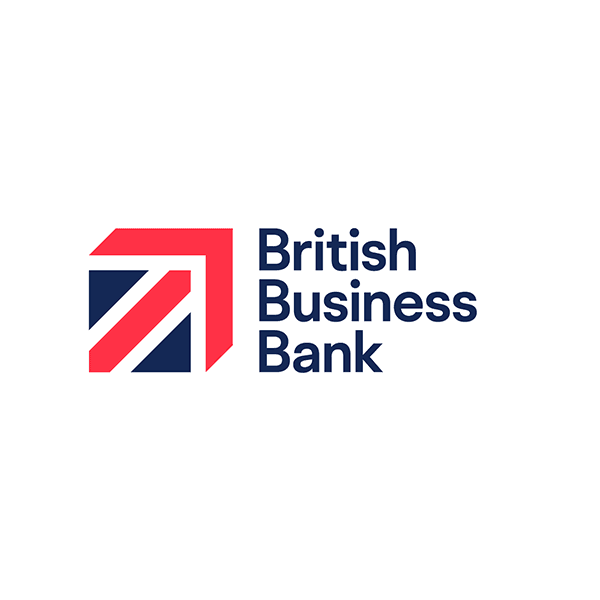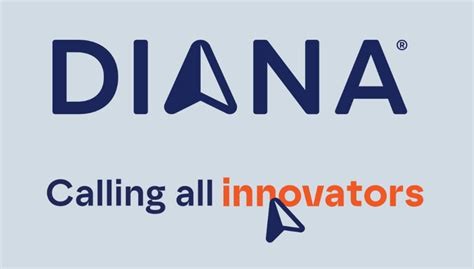Innovate UK launches next round of innovation loans
Innovate UK has announced its latest round of the Innovation Loan competition which offers a flexible, repayable funding option tailored for late-stage innovation projects. This competition is designed to support ambitious, growth‑oriented UK businesses looking to move groundbreaking products, services or models from development into commercial reality. Here’s everything you need to know about this opportunity presented in an accessible and engaging format.
Summary
Round 23 provides funding to support SMEs through both research and early market readiness:
- Loans ranging from £100,000 to £5,000,000, allowing full coverage of eligible project costs.
- Extended project duration of up to five years, with a maximum total loan term allowed of seven years (including repayment and other phases).
- Generous repayment structure featuring interest‑only draws at a rate of 3.7% per annum during the project period, with deferred interest of an additional 3.7% accumulating and becoming payable during the repayment period at 7.4% per annum.
- Allows for extensive pre‑commercialisation costs, such as tooling, market testing, production scale‑up, capital equipment, and up to 20% working capital support, especially welcome to projects making the leap to market.
Eligibility Criteria
To qualify for Round 22, applicants must meet the following requirements:
- Be a UK‑registered micro, small or medium‑sized enterprise (SME).
- Carry out the project in the UK and plan to exploit its results within the UK.
- Demonstrate financial suitability for a loan, including ability to repay and justification for public funding.
- Be a single business; collaboration is not permitted (though subcontracting is allowed with proper justification).
- Innovate UK will conduct a credit evaluation and assess whether your business can fulfil the loan obligations.
- The competition encourages applications from businesses that are underrepresented, including those in regions outside major innovation clusters, women‑led teams, ethnic minority groups, those with non‑traditional educational backgrounds and people with disabilities.
Scope of Funded Projects
The Innovation Loan competition targets late-stage innovation efforts intended to create significant economic and societal benefits:
- Projects should deliver innovative products, services or processes, substantially ahead of what currently exists, or demonstrate innovative business models.
- Must align with Innovate UK’s “future economy” themes, such as net zero, health and wellbeing, next generation digital technologies, advanced materials, AI, robotics, quantum, and more.
- Applicants must clearly show:
- A compelling, innovative concept.
- A sound business plan evidencing market need and strong commercial potential.
- A capable team to drive the project to completion.
- Risk awareness with mitigation plans.
- Robust financials that represent good value and provide a repayment strategy.
- Why the project cannot be self‑funded or supported through private or other public funding.
- The inclusion of a pre‑commercialisation workstream is encouraged to cover prototyping, testing, tooling, inventory generation, and up to 20 percent working capital, enabling smoother transition to market.
Key Dates and Timeline
Here are the important milestones for Round 23:
- Competition opened on 4th September 2025.
- Pre‑application briefing webinar to be held on 17th September 2025, with recordings and slides available to help applicants understand the process and changes.
- Financial deep‑dive workshops on 24th September, 29th September, and 9th October 2025, focusing on revenue forecasts, working capital planning and capitalisation—recommend participation for applicants serious about their financial submission.
Why You Should Consider Applying
Innovate UK’s Innovation Loan Round 23 offers a compelling package for SMEs advancing innovation to commercial deployment:
- Access to sizeable capital (up to £5 million) without equity dilution or personal guarantees; Innovate UK takes a secured debenture, not personal assets.
- Interest‑only drawdowns with deferred interest create a cash flow advantage during development and validation phases, helping you preserve runway.
- Funding covers both R&D and pre‑commercial activities, making it easier to prototype, validate, tool up and prepare for launch.
- Offers an inclusive approach, encouraging applications from diverse and underrepresented founders and regions.
- Engaging briefing sessions and workshops support applicants in strengthening their submissions and understanding evaluation criteria.
Why Apply?
Innovate UK’s Innovation Loans Round 23 is a strategic opportunity for UK SMEs with mature, market-ready innovations. The combination of generous loan sizes, flexible terms, inclusive eligibility, and practical financial support makes this round especially attractive.
If your business is driving late-stage R&D with a clear route to commercial success and societal benefit, this may be the funding pathway you need to cross the gap to market.
What Next?
For a FREE consultation to discuss your project, contact RedKnight today.
Fully Funded Horizon Europe Brokerage Visits
UK organisations eyeing Horizon Europe collaboration have a significant opportunity through the Horizon Europe Brokerage Visits 2025/2026, run by Innovate UK Business Connect in partnership with DSIT, the UK Science & Technology Network, and National Contact Points. These fully funded visits (open to up to 15 UK-registered bodies - SMEs, universities, corporates, RTOs) will take place between September 2025 and March 2026 across Germany, Spain, France, the Netherlands, and Belgium. Each visit targets specific Horizon Europe Cluster 4 topics (Digital, Industry & Space) aligned with planned work programme calls for 2026/27, offering practical support through matchmaking, pitch sessions, innovation workshops, and proposal guidance.
Below are all confirmed brokerage events for the 2025/26 series:
- Germany: 23–25 September 2025. Focus: Advanced Materials, Raw Materials & Chemicals
- Spain: 1–3 October 2025. Focus: Fast‑tracking Circularity
- Spain: 20–22 October 2025. Focus: Sustainable Agriculture
- France: 21–23 October 2025. Focus: Smart Energy Systems
- Netherlands: 17–19 November 2025. Focus: Sustainable Agriculture
- Netherlands: 1–4 December 2025. Focus: Innovative Advanced Materials/Technologies & AI for Manufacturing
- Belgium: 10–12 February 2026. Focus: Automotive Mobility.
Together, these visits present valuable engagements for UK delegates to meet European collaborators in sector-aligned pitches, roundtables, and workshops. Each event supports deep dive into forthcoming Horizon Europe call themes, for example advanced materials, circularity, smart systems, sustainable agriculture, AI in manufacturing, and mobility systems.
Key logistical and eligibility information:
- Applications open: 25th July 2025 at 12:00 pm (UK time).
- Each event typically has its own application deadline (e.g. Germany: 8th August 2025; notification 20th August).
- Innovate UK funds flights, accommodation, in-country travel, and daily subsistence for one representative per organisation.
- Eligibility: UK-registered SMEs, corporates, universities, RTOs, and Catapult Network members.
These visits build on earlier 2025 programmes that sent UK delegations to Italy, Spain, Germany, the Czech Republic, and Poland, focusing on energy tech, hydrogen, smart manufacturing, cybersecurity and resilience. The experience of those earlier rounds demonstrated tangible outcomes: early-stage project ideas, new cross-border partnerships, and groundwork for full Horizon Europe consortia.
Why participate?
Key benefits:
- Fully funded in‑market visit for one delegate: travel, lodging, subsistence.
- Sector-focused matchmaking with European peers aligned to your R&I themes.
- Professional guidance from UK NCPs, STN, and embassy networks on bid preparation and consortia formation.
- Pitch opportunities to showcase your innovation and gather collaborators.
- Strategic foresight into Horizon Europe 2026/27 calls aligning with Cluster 4 priorities.
If you're working in advanced materials, circular economy, energy systems, agricultural innovation, AI-enhanced manufacturing or mobility, these brokerage visits could be instrumental in starting or strengthening Horizon Europe projects.
Applications opened on the 25th July 2025 for the first events, followed by additional country-specific deadlines. Preparing a strong, focused innovation pitch and aligning your sector interests to each country’s theme will greatly enhance your application.
To express your interest, click here.
DRIVE35 Funding to Boost Zero-Emission Vehicle Innovation
Three new competitions have launched under the UK’s DRIVE35 innovation programme, providing £85 million in grant funding to accelerate the decarbonisation of commercial road transport. These opportunities, opened on 15th July 2025, are designed to support innovations in zero-emission vehicles and supporting systems, spanning heavy goods transport, last-mile delivery, and retrofit solutions. The competitions are part of the UK’s broader strategy to achieve net-zero emissions in transport and foster green industrial growth through real-world demonstrations and technology deployment.
The first of the three competitions focuses on heavy and long-haul commercial vehicles. It aims to support the development and demonstration of battery-electric trucks, hydrogen fuel cell technologies, and associated refuelling or charging infrastructure. This funding call is intended for ambitious projects that can help de-risk the adoption of zero-emission heavy vehicles at scale and facilitate integration into existing fleet and logistics operations. Projects must address both the vehicle technology and its supporting ecosystem—this includes grid connections, refuelling depots, and digital platforms to optimise use. The competition is open to UK-registered organisations, including large manufacturers, fleet operators, infrastructure developers, and research institutions. Collaborative projects are strongly encouraged to ensure system-level innovation. Funding levels typically cover between 40% and 70% of project costs, depending on business size and project type. Projects are expected to last between 18 and 36 months, with proposals due in the autumn. This competition directly aligns with the UK Government’s goal to end the sale of new non-zero emission HGVs by 2040 and develop a robust domestic supply chain for clean freight technologies.
The second competition targets the urban delivery and last-mile logistics sector, supporting the transition from diesel-powered vans to electric and other zero-emission vehicles. It places emphasis on practical, deployable innovations such as depot electrification, battery-as-a-service business models, and digital tools for route optimisation. Projects might involve electrifying an urban delivery fleet, integrating smart charging systems at depots, or trialling new logistics platforms designed to reduce vehicle mileage and emissions. This competition is particularly well-suited to SMEs, start-ups, and mid-sized operators working in fleet services, vehicle conversion, logistics software, or depot infrastructure. Funding is available for feasibility studies, industrial research, and experimental development, typically covering 45% to 70% of costs. Proposals must demonstrate clear potential for emissions reduction, commercial viability, and operational readiness. Like the other competitions, it opened on 15 July 2025, with deadlines expected in the early autumn and project durations ranging from 12 to 30 months. This call supports the UK’s clean cities agenda, tackling both congestion and air quality by promoting scalable, zero-emission alternatives in urban logistics.
The third competition focuses on specialist vehicle retrofit and conversion solutions, aimed at transforming existing diesel-powered vehicles for zero-emission use. This includes sectors such as construction, municipal services, events and utility vehicles, where bespoke or legacy vehicles are still widely used. It also covers the development of retrofit kits, hybrid systems, and conversion platforms to repurpose diesel vehicles into clean alternatives. By investing in this area, the competition supports not only emissions reductions but also cost-effective asset reuse and the development of a UK retrofit supply chain. Projects should involve a combination of retrofit specialists, vehicle operators, training providers, and possibly certification bodies. These projects are eligible for funding that typically covers between 45% and 65% of costs, depending on size and scope. Demonstration of the solution in real-world settings is essential, alongside evaluation of performance, emissions impact, and cost effectiveness. The competition is particularly attractive for retrofit SMEs and solution providers looking to prove the viability and safety of their technologies at fleet scale. Like the other DRIVE35 competitions, it opened on 15 July 2025 with expected deadlines in the autumn and projects running up to two years in length.
Collectively, these three competitions represent a significant strategic investment in clean mobility. By targeting three critical areas—heavy freight, urban delivery, and retrofits—they offer a comprehensive approach to transforming road transport across different use cases and vehicle types. Each competition requires an integrated systems approach, meaning applicants must consider not just vehicle technology, but also how it interfaces with infrastructure, logistics platforms, energy systems, and users. This encourages innovation that is scalable, commercially viable, and aligned with wider net-zero goals.
The timing of these competitions is also important. With the UK Government pushing hard on its transport decarbonisation plan and legislating to phase out internal combustion engine vehicles, industry now has both the regulatory certainty and financial backing needed to take bold steps toward zero-emission operations. The DRIVE35 funding allows businesses to demonstrate their technologies under real operating conditions, gather performance and user data, and refine their business models, all while reducing risk and building market credibility.
Each competition is tailored to different kinds of applicants. Larger OEMs and logistics companies will likely find the heavy-duty vehicle competition most relevant, whereas SMEs, start-ups, and digital innovators may be best suited to the last-mile delivery challenge. Retrofit specialists, vocational vehicle operators, and sustainability-focused service providers will find the retrofit competition a unique opportunity to prove and scale their solutions. What they all share, however, is an opportunity to secure substantial co-funding and build partnerships that can lead to long-term commercial success and environmental impact.
To succeed in these competitions, applicants should begin preparing early. Building a strong consortium is essential, projects will be judged not only on technical merit but also on their commercial potential, alignment with user needs, and ability to deliver measurable outcomes. Applicants should also engage with stakeholders such as fleet users, energy providers, local authorities, and regional innovation hubs to maximise their chances of impact and adoption.
As the UK seeks to lead in the global race to zero-emission transport, these DRIVE35 competitions offer a timely boost for innovators, manufacturers, and service providers alike. They will help to unlock investment, support the creation of green jobs, and demonstrate the viability of clean commercial vehicle solutions across the UK. With the deadline fast approaching, now is the time for ambitious businesses to act.
New £10M Opportunity for UK Innovators
On 7th July 2025, Innovate UK launched an exciting new funding opportunity aimed at helping early-stage UK businesses bring their groundbreaking technologies closer to market. The Growth Catalyst Early Stage: New Innovators competition will provide up to £10 million in funding to UK-registered micro and small businesses that have not previously received Innovate UK project funding. This initiative is designed to help high-potential startups progress toward becoming high-growth, scalable businesses. Applications are open now and must be submitted by 11:00am on Wednesday, 6th August 2025.
The competition is part of Innovate UK's wider Growth Catalyst programme, which pairs grant support with targeted business development support delivered through Innovate UK’s Business Growth (formerly EDGE) and Business Connect teams. By combining funding and tailored mentorship, Innovate UK aims to help early-stage firms accelerate their innovation journeys, validate their commercial ideas, and lay the foundations for scale-up.
Each successful applicant can receive between £25,000 and £50,000, covering 100% of eligible project costs. This funding will be delivered through a phased payment model: 70% is issued at project start, 20% after evidence of spend, and the final 10% upon successful project completion and approval. Projects must start on 1st November 2025 and run for a duration of 3 to 6 months, with a strict end date of 30th April 2026.
To qualify, applicants must be UK-registered micro or small businesses (typically under 50 employees) that have not previously received Innovate UK funding for a project, though previous awards through initiatives such as Young Innovators, Catapults, or Business Growth are permitted. This competition is ideal for startups at a formative stage of development, seeking to demonstrate proof of concept or early commercial traction.
The scope of the competition focuses on innovations that align with at least one of the UK government’s five critical technologies:
• Artificial Intelligence (AI) and Machine Learning (ML) – including new AI tools or innovations in trusted and responsible AI.
• Semiconductors – such as UK-based advancements in semiconductor design, materials, or manufacturing processes.
• Future Telecommunications and Advanced Connectivity – including technologies like photonics, open and interoperable networks, and cyber-secure or quantum-safe communications.
• Quantum Technologies – spanning scalable quantum computing platforms, quantum-classical hybrid algorithms, and applied quantum systems.
• Engineering Biology – involving synthetic biology, bioengineering tools, and novel sustainable biomanufacturing approaches.
Eligible projects must be business-led, UK-focused, and capable of demonstrating clear innovation, commercial potential, and societal or economic benefit. Projects must deliver more than academic research; Innovate UK is looking for solutions that show promise for commercial application and real-world impact.
Applications will be assessed across four core areas, each weighted equally:
1. The Idea – how innovative the concept is, the problem it solves, its market potential, affordability, and appeal to investors or customers.
2. Impact and Added Value – including how the project will benefit the applicant’s business, the UK economy, society or the environment, and why public funding is necessary.
3. Business Resources and Capabilities – an evaluation of the team’s ability to deliver, routes to market, and how the business addresses equality, diversity and inclusion.
4. Work Packages and Costs – clarity and justification of costs, project milestones, risk assessment, and freedom to operate from an IP perspective.
Applications are submitted online and must also complete non-scored sections relating to financial assistance declarations, compliance with animal welfare policies, export controls, and national security considerations. Subcontracting is allowed within the UK and internationally, but overseas suppliers must be justified with evidence that UK alternatives were explored.
Key dates for the competition are as follows:
• 7th July 2025 – Competition opens
• 8th July 2025 – Pre-recorded briefing available
• 6th August 2025 (11:00am) – Deadline for submissions
• 2nd September 2025 – Applicants notified of outcomes
• 1st November 2025 – Project start date
One important condition is that applicants can only submit one application to this competition. If a business submits more than one proposal, only the first will be considered. Additionally, the funding is classed as Minimal Financial Assistance (MFA), meaning a business must not have received more than £315,000 in public funding over the past three financial years.
This competition forms part of a broader government effort to catalyse innovation in sectors seen as essential to future economic growth and national resilience. By focusing on the five critical technologies (AI, semiconductors, connectivity, quantum, and engineering biology) the UK aims to secure global leadership in emerging markets.
Applicants are strongly encouraged to align their projects closely with one or more of these strategic areas and to clearly demonstrate how the funding will help them make significant progress toward commercialisation. Innovate UK is particularly interested in projects that can show:
• A clear route to market or customer validation
• The potential to unlock future private investment
• Societal or environmental benefit
• A strong case for public support to de-risk early innovation
Businesses interested in applying should act quickly, as the deadline is fast approaching. With only one application permitted per business and a strong focus on quality, clarity and strategic alignment, early preparation and careful planning are essential to success. For a free consultation to discuss your project idea, contact RedKnight today.
2026 European Prize for Women Innovators Now Open
Empowering Europe’s Female Changemakers
In an era rapidly defined by technological breakthroughs and global challenges, it’s crucial to spotlight those driving real impact. The European Prize for Women Innovators, a collaborative initiative by the European Innovation Council (EIC) and the European Institute of Innovation and Technology (EIT), does exactly that—shining a spotlight on women founders and co-founders across Europe whose work is reshaping health, sustainability, digital economies, and more.
What is the Prize?
Originally launched in 2011 as the “European Woman Innovator of the Year,” this prize has evolved into a multi-category recognition by 2023, now awarding nine prizes annually. The categories include:
1. EIC Women Innovators – three main awards of €100 000, €70 000, and €50 000 for established women entrepreneurs.
2. EIC Rising Innovators – aimed at promising innovators under 35, with prizes of €50 000, €30 000, and €20 000.
3. EIT Women Leadership Award – recognizing exceptional leaders within the EIT ecosystem, also offering €50 000, €30 000, and €20 000.
Launched on 17th June 2025, the 2026 edition is now accepting submissions, with a deadline of 25th September 2025 at 17:00 CEST.
Who Can Apply?
To be eligible, applicants must be:
• A natural person identifying as a woman.
• The founder or co-founder of a company or organisation legally established in an EU Member State (including overseas territories) or Horizon Europe–associated country.
• Their company must have been registered at least two years prior to 1st January 2022.
• Women under 35 can apply to the Rising Innovators category; there’s no age limit to the other categories.
Applicants cannot apply to more than one category or have previously won an EU/Euratom prize for the same achievement.
Award Criteria
Evaluations are based on three pillars:
1. Breakthrough Innovation – evidence of deep-tech or STEM-based disruptive innovation.
2. Impact – tangible benefits for people or the planet.
3. Inspiration – leadership that uplifts other women and girls.
Why It Matters
Despite progress, women remain underrepresented in tech and innovation, a gap only widened by systemic barriers in funding and visibility. This prize tackles that head-on, offering substantial financial support, visibility, and a network of peer inspiration. With a top prize of €100 000, alongside runner-up prizes reaching up to €70 000, plus broad media exposure, awardees gain momentum that can supercharge both commercial success and societal impact.
Real-World Impact: Stories from 2025 Winners
Insight comes alive in the stories of last year’s awardees, including those profiled by Sifted and other innovation press:
Women Innovators Award – Agnès Arbat (Oxolife, Spain)
Agnès Arbat co-founded Oxolife to revolutionize fertility treatment. Their flagship drug, OXO 001, significantly improves embryo implantation, boosting live birth rates by about 7% (148 babies born during Phase II trials). Backed by EIT Health and other grants, they’re now advancing towards Phase II trials for PCOS patients in 2026. “All the funds…specifically regarding EIT Health…helped us design the Phase II trial,” says Arbat.
Her research directly addresses infertility, a key health challenge, and showcases women’s central role in biotech innovation.
Rising Innovators – Camille Bouget (Scienta Lab, France)
Under 35, Camille Bouget co-founded Scienta Lab, developing EVA, an AI platform predicting drug efficacy for immuno-inflammatory diseases. With €4.4 million raised, EVA evaluates treatments across 15 conditions, reducing risk early in drug development.
“We can help pave the way for a more inclusive innovation ecosystem…,” Bouget reflects.
She demonstrates how youthful insight, when paired with deep industry know-how, she came from Sanofi and Galápagos, can redefine healthcare innovation.
EIT Women Leadership – Débora Campos (AgroGrIN Tech, Portugal)
Débora Campos founded AgroGrIN Tech to convert industrial fruit waste into functional food ingredients. Following a PhD project, her business now pilots clean-label solutions for food manufacturers, merging sustainability with profitability. “That ecosystem helped us sharpen our business model… accelerate our go-to market strategy,” she says. Her win signals how circular economy innovation can scale, and how support from entities like EIT Food can be transformative.
Support Ecosystem & Evaluation Process
Eligible candidates choose one category and apply via the European Commission’s Funding & Tender portal, where detailed contest rules and submission guides are available.
Applications follow a strict structure:
• Form A (admin) and Form B (technical, max 15 pages)
• Supporting annexes
• A 90-second inspirational video.
A jury of independent experts selects winners based on the three award criteria, ensuring transparency and meritocracy.
How to Apply: Key Dates & Steps
• Launched: 17th June 2025
• Deadline: 25th September 2025 at 17:00 CEST
• Evaluation: September 2025–January 2026
• Awards Ceremony: January–March 2026
Why You Should Consider Applying
1. Boost to innovation – The prize money injects growth capital into R&D, scaling, or market entry.
2. Unmatched visibility – EU-level recognition, featured at events like the EIC Summit.
3. Peer learning – Join an elite community of women leaders.
4. Credibility – Builds trust with investors and strategic partners.
5. Inspiration multiplier – Awardees become role models for women and girls in STEM.
Broader Legacy & Future Outlook
Since its inception, this prize has recognised dozens of women across Europe and associated countries, for example, winners in 2022 included Rocío Arroyo (Spain), Ciara Clancy (Ireland), and others. These laureates now lead in sectors ranging from biotech to sustainable energy.
Today’s expansion, with more categories, bigger prizes, and open eligibility across EU and associated nations, demonstrates strong commitment to diversity in innovation. By 2026, the award infrastructure will include support webinars, mentorship opportunities, and more visible storytelling.
British Business Bank Announces £6.6 bn Boost for UK Innovation
The British Business Bank (BBB), the UK government’s economic development bank headquartered in Sheffield, has been allocated a fresh £6.6 billion in capital as part of the government’s 2025 Spending Review and its new Modern Industrial Strategy. This initiative aims to increase funding capacity from £15.6 billion to £25.6 billion, enabling approximately £2.5 billion in annual investments—an increase of two-thirds.
Two-pronged Investment Focus
The announced capital is structured into two key strands:
- £4 billion - Industrial Strategy Growth Capital
- Targeted investment in eight strategic, growth-driving sectors: advanced manufacturing, clean energy, creative industries, defence, digital/tech, financial services, life sciences, and professional/business services.
- Aims to leverage another £12 billion of private capital, bringing the total to roughly £16 billion over four years.
- Designed to bridge scale-up finance gaps, including direct investments of up to £60 million in high-potential companies, anchoring them in the UK.
- Will also support venture ecosystems by backing specialist and emerging fund managers.
- £2.6 billion - Regional and Inclusive Entrepreneurs Fund
- Focus on "anyone, anywhere", supporting entrepreneurs across UK regions, especially in high-growth innovation clusters.
- Includes new £350 million Nations & Regions Investment Funds for East and Southeast England, plus £100 million boosting existing cluster investments.
- Expansion of the Regional Angels Programme and establishing a new Investor Pathway Capital initiative to nurture diverse and emerging fund managers.
Strategic Goals and Economic Impact
These initiatives are designed to:
- Fill critical gaps in startup and scale-up finance across regions.
- Crowd-in private and institutional investment, with an expected £30 billion of total economic impact (GVA).
- Support the growth and retention of high-potential companies across key UK sectors.
- Develop a resilient finance ecosystem by supporting diverse and specialist managers.
BBB CEO Louis Taylor emphasised the bank’s catalytic role: “Using our market expertise and reach, we have a critical role to play in supporting smaller businesses… no matter what their background or where they are located”.
Building on Momentum
This move builds on BBB's decade-long track record: over £17 billion delivered to nearly 64,000 small businesses via core programmes, plus oversight of £80 billion in COVID-era finance support. It positions the bank to anchor future "star" businesses and rebalance regional inequalities.
What This Means for UK SMEs & Innovators
- Access to larger, tailored equity and debt capital, especially for scale‑ups and deep‑tech firms.
- Enhanced regional funding options, reducing dependence on London‑centric finance.
- Backing for diverse fund managers, improving chances for under-represented entrepreneurs.
- A stable, long-term investment framework built to withstand economic cycles.
Eurostars Call 9 Opens July 2025
Funding for Internationally Collaborating Innovative SMEs
The Eurostars programme, jointly managed by EUREKA and the European Commission, is one of Europe’s most SME-friendly funding schemes for collaborative R&D. It is designed to support R&D-performing SMEs and their partners in developing innovative, market-ready products, services, or processes through international collaboration. The next funding opportunity—Eurostars 3, Call 9—opens on 4 July 2025 and will close on 4 September 2025 at 14:00 CEST.
This call is part of the Horizon Europe Partnership on Innovative SMEs and is aimed at small consortia of organisations from different participating countries. Its objective is clear: to support innovative SMEs in executing transnational R&D projects with high market potential and commercial ambition.
Key Dates and Timeline
Eurostars Call 9 provides a two-month application window, with a streamlined evaluation and decision-making process.
Important dates include:
- Call opens: 4th July 2025
- Deadline for submission: 4th September 2025 at 14:00 (CEST)
- Evaluation results: Expected by end of November or early December 2025
- Project start dates: Typically within 6 months of submission, subject to national processes
Applicants are advised to begin early and consult their national funding bodies to align with country-specific rules and requirements.
Who Can Apply?
Eurostars is open to SMEs leading international R&D collaborations, with a particular focus on innovation and commercialisation. Projects must be led by an R&D-performing SME and involve partners from at least two participating Eurostars countries.
Minimum eligibility criteria:
- The project consortium must include at least two independent entities from two different Eurostars countries (UK is included).
- The lead applicant must be an innovative SME from a Eurostars country.
- SMEs must carry at least 50% of the total project costs (excluding subcontracting).
- No participant or country can contribute more than 70% of the total budget.
- Projects must have a maximum duration of 36 months.
- Results should be targeted for civil applications only.
Eurostars currently includes 37 countries, including EU member states, the UK, Norway, Turkey, Israel, Switzerland, and several others. The programme’s flexibility allows SMEs to partner with universities, large companies, and research centres, if the SME remains the project lead.
Funding Rules and Budget
Funding through Eurostars is provided on a decentralised basis, meaning that each participating country funds its own organisations according to national rules. This means that grant rates, eligible costs, and submission procedures can vary significantly between countries.
Typical funding characteristics:
- SMEs can receive between 40–80% of eligible costs, depending on national rules (60% in the UK).
- Universities and research institutes are often eligible for funding, but this varies (not eligible in the UK).
- Maximum grant sizes also vary; some countries cap funding per partner or per project (€600,000 total cost maximum for UK SMEs).
Applicants must contact their national funding agency to confirm their eligibility and understand any specific requirements before submitting.
Application and Evaluation Process
The Eurostars application process is fully online via the Eureka Project Management Platform. The system opens on 4th July 2025, and proposals must be submitted by 4th September 2025 at 14:00 CEST.
The submission and evaluation process includes:
- Online application: Including technical annex, budget, partner declarations, and Gantt chart.
- Eligibility checks: Ensuring all criteria are met, conducted immediately after the deadline.
- Technical assessment: Carried out by two independent international experts.
- Centralised evaluation: Projects are ranked by an Independent Evaluation Panel.
- Ethics review: Conducted for projects involving sensitive data, human subjects, or ethical risks.
- Funding decisions: Made by national funding bodies, typically 6–8 weeks after the ranking list is finalised.
A clear strength of Eurostars is its centralised evaluation with decentralised funding, enabling high-quality cross-border projects while preserving national control over budgets.
Why Apply: Key Benefits of Eurostars
Eurostars stands out for its accessibility, flexibility, and proven impact on SME growth. It is particularly attractive for SMEs that are too small for direct EU programmes like EIC Accelerator or Horizon Europe collaborative calls, yet still need substantial support to scale innovation internationally.
Top reasons to apply:
- High success rate: ~29%, significantly higher than most EU R&D schemes.
- Bottom-up approach: No fixed themes - applicants define their own project scope.
- Quick feedback: Results delivered within 3 months of submission.
- Flexible funding: Each partner receives funds through its own national agency.
- Strong impact: On average, participating SMEs increase their turnover by 15% and enter new international markets.
- Small consortia allowed: Ideal for agile, focused R&D collaborations (2–4 partners).
Preparing a Competitive Application
To boost your chances of success, preparation is key. Applicants are encouraged to attend webinars and national information sessions, some of which will take place in early July 2025.
Tips for success:
- Engage your national contact point early to confirm eligibility.
- Build a balanced, complementary consortium with clear roles and shared risk.
- Ensure your project has a clear route to market, including a commercialisation plan.
- Emphasise your project’s technical excellence, commercial potential, and societal impact.
- Allow time for internal review, document collection, and Gantt chart planning.
- Use professional support services where necessary, several consultancies across Europe specialise in Eurostars bid writing.
Next Steps: What Should You Do Now?
If you’re considering applying to Eurostars Call 9, here’s what you should do next:
- Check eligibility with your national funding body
- Identify potential partners in other Eurostars countries
- Mark your calendar for the 4th July 2025 opening
- Start drafting your proposal early
- Attend a webinar for application tips and evaluation insights
- Register on the Eurostars portal: www.myeurekaproject.org
For a free consultation to discuss your project in more detail, contact RedKnight today.
€100k Dual-Use Tech Challenge Across 10 Critical Domains
On 2nd June 2025, NATO’s Defence Innovation Accelerator for the North Atlantic (DIANA) unveiled an ambitious set of ten new technology challenges, marking a major expansion of its mission to identify and fast track dual use deep tech across the Alliance. Running until 12:00 UTC on 11th July 2025, this competition offers €100,000 in funding and access to a six month accelerator starting January 2026, with top performers eligible for up to an additional €300,000 in the next programme phase.
What is DIANA?
Established in June 2021 and operational since June 2023, DIANA is NATO’s first innovation accelerator body dedicated to dual use deep technologies, solutions that bridge civilian and military applications. Operating out of regional locations in London, Tallinn, and Halifax, it harnesses a continent wide network of 200+ accelerator sites and test facilities across Europe and North America.
Managed by Professor Deeph Chana, DIANA runs a competitive, multi phase model: public challenge calls → rapid non dilutive grants → a structured Phase 1 accelerator → rigorous down select to Phase 2 → real world testing, adaptation, and adoption by NATO and member states.
It also feeds promising technologies into the €1 billion NATO Innovation Fund, launched in June 2022 to scale dual use deep tech innovation.
The 2025 Challenges
The ten focus areas reflect NATO’s evolving defence and resilience needs:
1. Energy & Power
2. Advanced Communication Technologies
3. Contested Electromagnetic Environments
4. Human Resilience & Biotechnologies
5. Critical Infrastructure & Logistics
6. Operations in Extreme Environments
7. Maritime Operations
8. Resilient Space Operations
9. Autonomy & Unmanned Systems
10. Data Assisted Decision Making
Each challenge invites innovators to address pressing capability gaps, ranging from AI enabled decision tools to resilient comms systems and advanced biotech for personnel.
Support and Selection Process
• Phase 1: €100,000 in contractual funding, six month accelerator, access to test centres, mentor network, and industry end user engagement.
• Phase 2 (down selected): Additional funding, deeper integration, field testing, and potential procurement opportunities.
Since its pilot in 2023, DIANA has supported:
• 44 startups across three challenges (energy resilience, sensing & surveillance, secure information sharing), selected from 1,300+ proposals.
• Over 70 companies awarded for the 2025 accelerator, spread across 20 NATO countries, covering similar deep tech domains.
Past participants include innovators in quantum cryptography, secure messaging, and cyber resilience, such as Hushmesh, Goldilock, and LevelQuantum, which received €100,000 and access to NATO test labs.
Spotlight: The Arctic Innovation Mobilisation
In May 2025, DIANA ran a focused Arctic Innovation Mobilisation (AIM) competition in collaboration with Norway, targeting solutions for extreme cold and remote conditions. Five winners, including US, Norwegian, and Canadian firms, received up to €50,000 each for innovations spanning PNT resilience, power systems, UAS charging, and avalanche safety. The initiative emphasises DIANA’s agility in responding to regional and environmental security demands.
Why It Matters
DIANA represents a significant shift in NATO's approach:
• Breaking the ‘washing machine’ procurement model by focusing on effect based challenges, not preconceived solutions.
• Accelerating impact: swift funding, end user feedback loops, and streamlined adoption pathways.
• Embracing dual use innovation, bridging civilian technology with military needs.
• Leveraging collective scale: regionally rich, multi national, resourced innovation hubs.
These new 2025 challenges reveal NATO’s readiness to tackle next generation threats, whether cyber electromagnetic, space based, environmental, or biologically oriented, through tech-powered resilience.
How to Participate
• Innovators (startups, SMEs, researchers) have until 12:00 UTC, 11th July 2025 to apply via the DIANA website.
• Proposals must clearly address one of the ten challenge areas with strong evidence of novelty, feasibility, dual use potential, and defence alignment.
• No equity is taken; grant-based support ensures innovators retain ownership.
What to Watch For
• Announcement of the 2026 cohort, expected early 2026.
• Success stories from Phase 1 projects that transition to practical adoption.
• NATO’s Innovation Fund investments in standout DIANA participants.
• Continued regional initiatives like AIM, reflecting NATO’s flexibility.
Interested in learning more or applying? Contact RedKnight today.
Future Leaders Fellowships Round 10
Driving Research and Innovation Leadership
UKRI Future Leaders Fellowships (FLF) programme is back with Round 10. One of the UK’s most prestigious funding schemes designed to empower the next generation of research and innovation talent. With up to £110 million in grant funding available, this round is set to support outstanding individuals with the vision, drive, and capability to become world-leading leaders in their field.
Applications for Round 10 open on 23rd June 2025 and close at 11:00am on 5th November 2025.
What Is the Future Leaders Fellowship?
The FLF programme provides sustained, flexible support to early-career researchers and innovators working across all sectors. Its overarching aim is to retain, attract, and nurture future talent, providing a springboard for the next wave of high-impact research and commercially significant innovation.
Each fellowship offers up to £3 million in funding over a four-year term, with the option to apply for a further three years of support. Unlike many grants, FLF is open to individuals working in academia, industry, public sector, and charitable organisations alike, encouraging cross-sector mobility and knowledge exchange.
Aims of the Programme
The FLF scheme seeks to:
- Develop the next wave of high-potential leaders across research and innovation.
- Foster ambitious, original, and interdisciplinary work that would otherwise be hard to fund through standard routes.
- Bridge sectors by supporting work that spans academia, business, and public or third sectors.
- Encourage long-term career development, giving researchers the time and resources to build a robust portfolio.
- Support mobility, enabling fellows to move between sectors or institutions to maximise impact and career progression.
This combination of financial support and long-term vision positions the FLF as a unique and highly impactful programme within the UK’s innovation funding landscape.
Scope and Thematic Focus
Round 10 continues UKRI’s commitment to supporting transformative work across all disciplines and sectors. However, the guidance outlines several key themes and priorities, encouraging applicants to consider challenges with long-term economic and societal relevance.
The programme encourages proposals that:
- Advance the UK's net zero goals, particularly through innovations in clean energy, sustainable manufacturing, or environmental resilience.
- Strengthen national security and resilience, including cybersecurity, advanced materials, or critical infrastructure.
- Enhance health and wellbeing, especially in areas aligned to NHS priorities, data-driven healthcare, or personalised medicine.
- Support technological sovereignty, such as artificial intelligence, semiconductors, quantum technologies, and photonics.
- Tackle inclusive growth, aiming to reduce regional inequality or promote diversity in research leadership.
While the programme remains open to all innovative topics, these themes reflect UKRI’s strategic priorities and global challenges where future leadership will be vital.
Who Can Apply?
Applicants must be hosted by a UK-based organisation. This includes:
- Higher education institutions
- Businesses
- Catapults and research and technology organisations (RTOs)
- Charitable organisations
- Public sector bodies (such as the NHS, government agencies, or local authorities)
You don’t need a PhD, and there’s no restriction on the number of years since your last degree. Instead, UKRI is looking for people who:
- Have a compelling track record relative to their career stage.
- Are transitioning to or establishing independence.
- Are proposing ambitious, original work that goes beyond the norm in their discipline or sector.
Importantly, applicants must not already be established research or innovation leaders (for example, leading a significant grant or commercial R&D portfolio).
Funding Offer
Applicants can request between £100,000 and £3 million in grant funding to cover:
- Salary (for both the fellow and team members)
- Research and development costs
- Equipment and infrastructure
- Training, mobility, and collaboration activities
All work must be carried out in the UK, with project outputs expected to deliver benefit from or within the UK. Fellows are encouraged to explore secondments, international collaborations, and inter-sector mobility where it enhances impact.
Projects must last a minimum of four years. A further three years of funding may be available via a separate process if significant progress has been demonstrated.
Application Process
There are two application routes:
- Academic applicants must apply via the UKRI Funding Service.
- Non-academic applicants (e.g., business or third sector) must apply via the Innovate UK Innovation Funding Service (IFS).
The application consists of a comprehensive proposal, outlining:
- The originality, feasibility, and strategic value of your proposed programme.
- How the fellowship will catalyse your progression to research/innovation leadership.
- Your host organisation’s commitment to supporting your career development.
- The anticipated impact of your work, whether academic, commercial, or societal.
Applicants will also need to submit a host organisation statement and details of career development support.
Assessment Criteria
Proposals will be assessed by a diverse panel of expert reviewers and interviewers against criteria including:
- Vision and ambition
- Leadership potential
- Methodological rigour
- Contribution to UKRI’s strategic priorities
- Host organisation support and career trajectory
As funding is limited, only the most competitive and strategically aligned proposals will be funded.
Supporting Diversity, Equity, and Inclusion
UKRI is committed to advancing equality, diversity and inclusion (EDI) through its funding mechanisms. Applications are encouraged from underrepresented groups, and adjustments will be made where needed to ensure an accessible application process.
Applicants with disabilities or long-term conditions are encouraged to contact Innovate UK at least 15 working days before the closing date to arrange reasonable accommodations.
Why This Fellowship Matters
At a time when the UK is doubling down on science and technology-led growth, the FLF programme stands out as a bold investment in people. It offers individuals the rare opportunity to:
- Build a long-term, independent career track.
- Develop multidisciplinary, cross-sector programmes of work.
- Shape national and global priorities across industry, academia, and public policy.
Whether you are a pioneering engineer developing clean battery tech, a biomedical researcher tackling health inequities, or an entrepreneur driving AI adoption in public services, the FLF can be the vehicle that propels your ideas from concept to impact.
To discuss your project idea in more detail, contact RedKnight today for a free consultation.
Accelerating the UK's Future Flight
The UK's aviation sector is embarking on a transformative era, driven by innovations in drones, electric vertical take-off and landing (eVTOL) aircraft, and zero-emission conventional take-off and landing (CTOL) planes. To propel this evolution, Innovate UK, in collaboration with the Department for Transport (DfT), has unveiled two new funding competitions under the Future Flight Challenge: the "Future Flight: Strategic Growth" and the "Future Flight: Regional Demonstrator." These initiatives aim to bridge the gap between groundbreaking trials and real-world commercial operations, fostering sustainable growth and positioning the UK at the forefront of advanced aviation.
Future Flight: Strategic Growth
Objective: This competition seeks to accelerate the development of the UK drone sector by supporting projects that demonstrate progress towards commercialisation or routine Beyond Visual Line of Sight (BVLOS) operations. The focus is on building upon current state-of-the-art approaches to create growth and meet the objectives of the DfT's Future of Flight programme.
Key Details
- Funding Available: Up to £3 million in total, with individual grants ranging between £250,000 and £500,000.
- Project Duration: Projects must last between six and seven months, commencing on 1st September 2025 and ending by 31st March 2026.
- Eligibility: Open to UK-registered organisations. Projects must be carried out in the UK and intend to exploit the results from or in the UK.
Project Requirements
Applicants must deliver either:
- Tangible Outcomes in New Use Cases: Projects should focus on new use cases previously at a demonstration phase or scaling up existing commercial use cases, with strong end-user involvement.
- Developments Supporting Regulatory Policy: Projects should contribute to the regulatory policy concepts or concepts of operation being developed by the Civil Aviation Authority (CAA) to enable Remotely Piloted Aircraft Systems (RPAS). Applicants must be willing to share data and outputs with the CAA.
Strategic Focus Areas
Applications are particularly encouraged in areas such as medical delivery, inspection of critical infrastructure, maritime operations, agriculture, and support to frontline public services.
Application Deadline: 11:00am on Wednesday, 11th June 2025.
Future Flight: Regional Demonstrator
Objective: This competition aims to accelerate the transition from trials of cutting-edge innovations to real-world commercial operations at a regional scale. The goal is to unlock high-value, socio-economic benefits for UK communities and align with the objectives of the DfT's Future of Flight programme.
Key Details
- Funding Available: Up to £600,000 in total, with individual grants ranging between £150,000 and £200,000 to support the development of regional demonstrators.
- Eligibility: Open to UK-registered organisations. Projects must include at least one local government authority and at least one operator, end-user, or customer.
Project Requirements
Projects must deliver one or more of the following:
- Pathway to Commercial Operations: Develop a detailed plan to transform demonstrations into real-world commercial operations at scale within a selected UK geographical area.
- Business Case Development: Create a business case for commercial drone, eVTOL, or zero-emission CTOL aircraft services that deliver high-value socio-economic benefits to a selected UK region.
- Proof of Concept: Establish a proof of concept or concept of operations for commercial drone, eVTOL, or zero-emission CTOL aircraft services at scale across a selected UK area.
- Living Lab or Test Bed Development: Plan for a living lab or test bed representative of the future flight operating ecosystem to accelerate regional-scale regulatory, community, and infrastructure readiness.
- Multimodal Transport Integration: Accelerate multimodal transport by integrating drone, eVTOL, or zero-emission CTOL aircraft into regional transport networks or hubs, including airports.
- Commercial Development Plan: Develop a commercial plan for drone, eVTOL, or zero-emission CTOL aircraft services in a selected UK area, based on identified commercially viable use cases that meet regional socio-economic needs and customer demand.
Application Deadline: 11:00am on Wednesday, 11th June 2025.
Strategic Implications for the UK's Aviation Sector
These funding competitions represent a concerted effort by the UK government to foster innovation, sustainability, and economic growth within the aviation sector. By supporting projects that bridge the gap between demonstration and commercialisation, the UK aims to:
- Enhance Regional Connectivity: Facilitate the integration of advanced air mobility solutions into regional transport networks, improving accessibility and reducing travel times.
- Promote Environmental Sustainability: Encourage the adoption of zero-emission aircraft technologies, contributing to the UK's net-zero carbon emissions targets.
- Stimulate Economic Growth: Create new market opportunities, jobs, and services, particularly in underserved or remote areas.
- Strengthen Regulatory Frameworks: Collaborate with regulatory bodies like the CAA to develop policies and standards that ensure the safe and efficient integration of new aviation technologies.
The “Strategic Growth" and "Regional Demonstrator" competitions offer a unique opportunity for innovators, local authorities, and industry stakeholders to contribute to the evolution of the UK's aviation landscape. By participating in these Future Flight initiatives, organisations can play a pivotal role in shaping a more connected, sustainable, and economically vibrant future.










